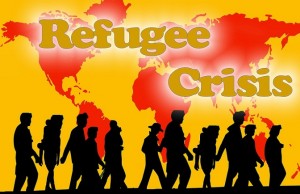 Access to water is a human right, yet it is a huge challenge for refugees in more than 50% of the refugee camps globally; refugees cannot even secure the 20 litres of water that is seen to be the daily minimum required per person.
Access to water is a human right, yet it is a huge challenge for refugees in more than 50% of the refugee camps globally; refugees cannot even secure the 20 litres of water that is seen to be the daily minimum required per person.
According to a report by the United Nations High Commissioner for Refugees, they often struggle without adequate access to water, sanitation and hygiene facilities, which impacts negatively on their health and survival.
Inadequate access to water results in:
- Education: Around 42% of school children have their schooling interrupted due to having to collect water;
- Environment: Non-sustainable usage of water resources can potentially overexploit groundwater resources;
- Food security and Livelihoods: Women spending time collecting water miss out on opportunities to participate in more productive activities;
- Nutrition: A woman collecting around 80 litres of water and carrying it 200 metres uses around 17% of the standard ration of 2,100 Kcal/day just to do this simple task; and
- Security Problems: Young girls and women who have to walk long distances to collect water are put at risk of sexual violence.
Many of the refugees know what it is like to be without water, as they come from war-torn regions where everything was destroyed, and many of them spent weeks trying to flee to safer regions or even other countries, making do with drinking unsafe river water or water from small holes they dug in the ground, often suffering because of it.
Fortunately there have been some innovative ideas, such as in the Ab Gadam refugee camp in a semi-arid area of south-east Chad, where the only source of water for drinking, personal hygiene, and cooking is dirty, brown, and impure lake water. This water is treated with chemicals in big onion-shaped tanks and comes out clear, clean and ready to drink or to cook with after an 11-hour cycle.
The refugees are currently getting around 80 litres of clean, potable water per person per day, and efforts are still ongoing to source productive boreholes, with at least some success. Some refugees are also innovative enough to source their own water by collecting rainwater in anything that can hold water, including pots and pans.
Get watercooler and bottled watercooler from Living-Water. Rent water cooler and bottled water cooler in London.





